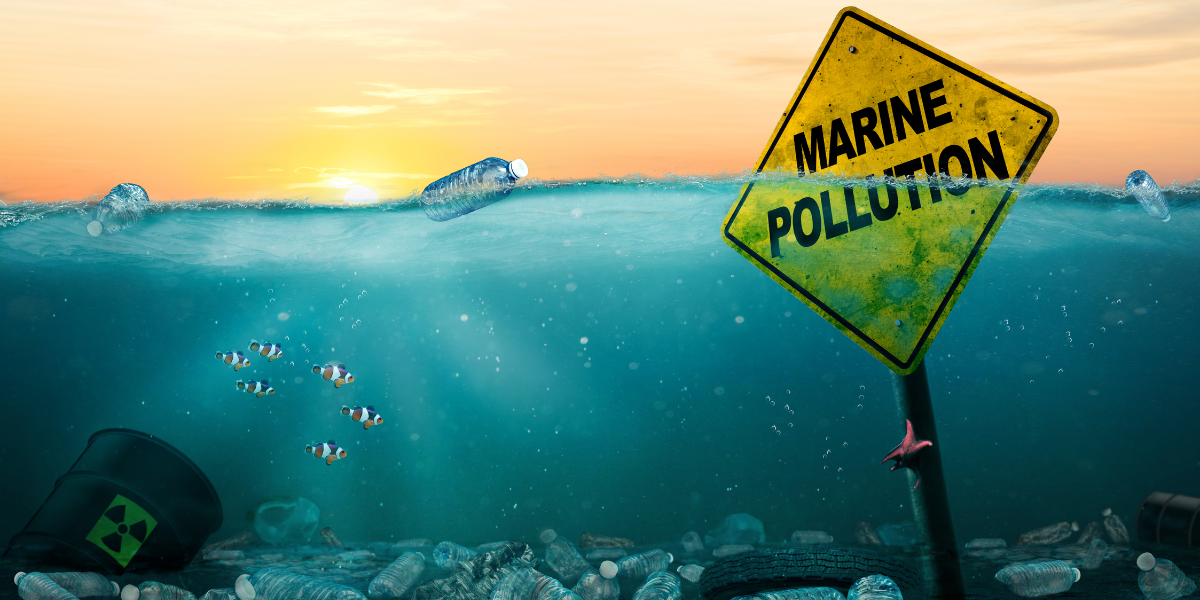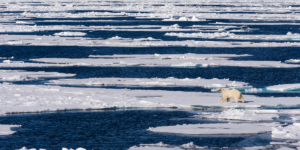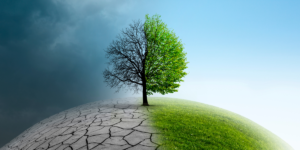Do you ever stop to think about the impact your actions have on the world’s oceans? Human activity has a profound effect on marine ecology, from overfishing to pollution and climate change. As we continue to exploit the ocean’s resources, it is essential to understand how our actions are affecting this fragile ecosystem.
Overfishing is one of the most significant threats facing marine ecology today. As fish populations decline due to commercial fishing practices, entire ecosystems can be disrupted or even destroyed.
Pollution also plays a significant role in harming marine life. From plastic waste clogging up ocean currents to toxic chemicals leaching into the water, our trash has devastating consequences for marine creatures.
And with climate change causing sea temperatures and acidity levels to rise, many species are struggling to adapt and survive in their changing environments. It is crucial that we take responsibility for our impact on marine ecology and work towards sustainable practices that preserve this vital ecosystem for future generations.
Key Takeaways
- Overfishing, pollution, ecosystem destruction, and climate change are significant threats to marine ecology caused by human activity.
- Sustainable fishing practices, recycling efforts, reduction of greenhouse gas emissions, and eco-tourism are some of the conservation solutions that can be implemented to protect marine ecosystems.
- Education and community engagement play a crucial role in conservation efforts and can help achieve greater support for these initiatives.
- Protecting marine ecology is essential for future generations to have access to healthy oceans and thriving ecosystems, which are crucial for the overall health of our planet.
The Impact of Overfishing on Marine Ecology
Oh, don’t worry, overfishing is just a fantastic way to completely decimate marine ecosystems in no time! When we fish more than what the ocean can replenish, it disturbs the balance of the ecosystem and threatens the survival of numerous species.
This imbalance not only affects marine life but also impacts human livelihoods and economies that depend on fishing. To prevent this devastating impact, sustainable fishing practices must be implemented. These practices include setting catch limits, reducing bycatch (the accidental catching of non-targeted species), and implementing fishing gear that minimizes damage to the seafloor.
By using these methods, we can ensure that fish populations remain stable and healthy while also maintaining economic benefits for those involved in the fishing industry. It’s essential to remember that our actions have consequences, so let’s make sure we take steps towards responsible fishing practices to protect our oceans’ health for generations to come.
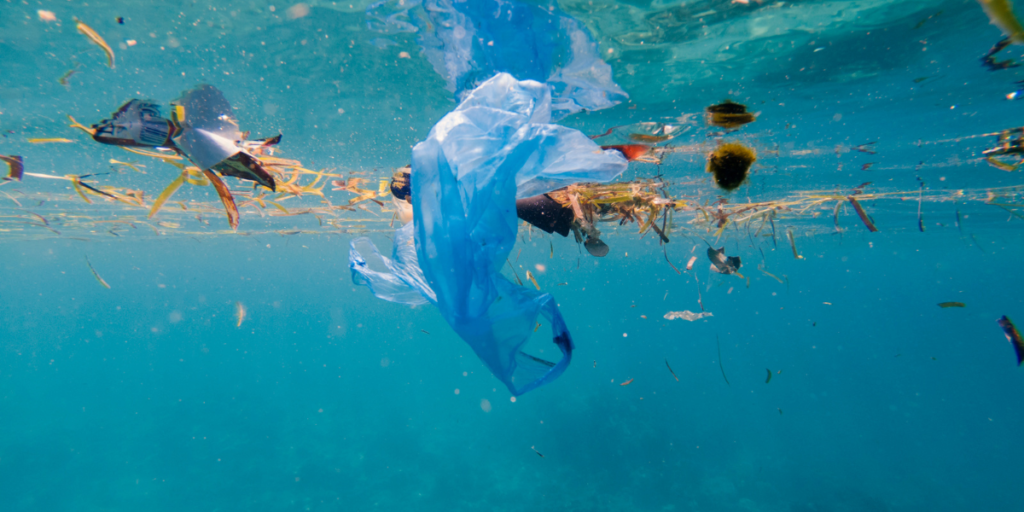
Pollution and its Effects on Marine Life
As you delve deeper into the impact of human activity on marine ecology, it’s important to consider the effects of pollution on marine life.
Plastics and chemicals are among the most notorious pollutants in our oceans today, wreaking havoc on delicate ecosystems and threatening countless species.
Not only does this pollution harm marine life, but it can also pose significant health risks to humans who consume contaminated seafood or come into contact with polluted waters.
Plastics and Chemicals
The impact of plastics and chemicals on marine ecology cannot be underestimated, as they pose a serious threat to the health of our oceans. Plastics, in particular, have become ubiquitous in our daily lives and are now found throughout the world’s oceans.
Recycling efforts have been put in place to reduce plastic waste, however, microplastic pollution remains a significant issue. These tiny plastic particles can be ingested by marine organisms and enter the food chain, causing harm at every level.
Chemicals such as pesticides and fertilizers also contribute to the deterioration of marine ecosystems. Runoff from agricultural lands carries these chemicals into nearby waterways, leading to harmful algal blooms that deplete oxygen levels and create dead zones where no life can exist.
Additionally, industrial activity releases toxic chemicals into the ocean that accumulate in fish and other organisms consumed by humans. The long-term effects of these pollutants on human health are still being studied, but there is no doubt that we must take action to reduce our reliance on harmful chemicals if we want healthy oceans for future generations.
Harm to Marine Ecosystems
You may not realize it, but the harm we’re causing to marine ecosystems is having a profound impact on the delicate balance of life in our oceans. Human activities like overfishing, bottom trawling, and pollution have led to ecosystem destruction and habitat degradation. These actions disrupt food chains and reduce biodiversity, ultimately threatening the survival of some species.
One major example of ecosystem destruction caused by human activity is coral reef decline. Coral reefs provide habitats for diverse marine life and help protect coastlines from storms. However, ocean acidification resulting from increased carbon dioxide levels in the atmosphere has made it difficult for corals to form their skeletons. Additionally, overfishing has led to an increase in algae growth which smothers coral colonies.
As a result, many coral reefs are dying off at an alarming rate with devastating consequences for both marine life and coastal communities who rely on them for economic reasons such as tourism or fishing industries.
Human Health Risks
Diving into the ocean can be a risky business, with potential illnesses and infections lurking in the depths. Human activity has contributed to the decline of marine ecosystems, which in turn pose risks to human health.
Here are some of the ways that human activity affects human health when interacting with marine ecology:
- Harmful Algal Blooms (HABs): Some types of algae produce toxins that can cause respiratory issues, skin irritation, and neurological problems if ingested.
- Mercury Poisoning: Coal-fired power plants release mercury into the atmosphere which eventually finds its way into oceans. Fish bioaccumulate this toxin and consuming them can lead to mercury poisoning.
- Pathogens: Sewage discharged from ships or coastal cities pollutes oceans with bacteria such as E.coli or Vibrio vulnificus leading to gastrointestinal issues or infections.
- Ciguatera Poisoning: Certain fish species consume toxic algae which accumulate ciguatoxins in their flesh. Consuming these fish leads to ciguatera poisoning.
Prevention measures against these health hazards include avoiding swimming in water where HABs have been reported, choosing low mercury fish for consumption, proper disposal of sewage waste from ships/cities and being aware of fish species prone to containing ciguatoxins. Public awareness campaigns about these risks will help reduce exposure and improve overall public health.
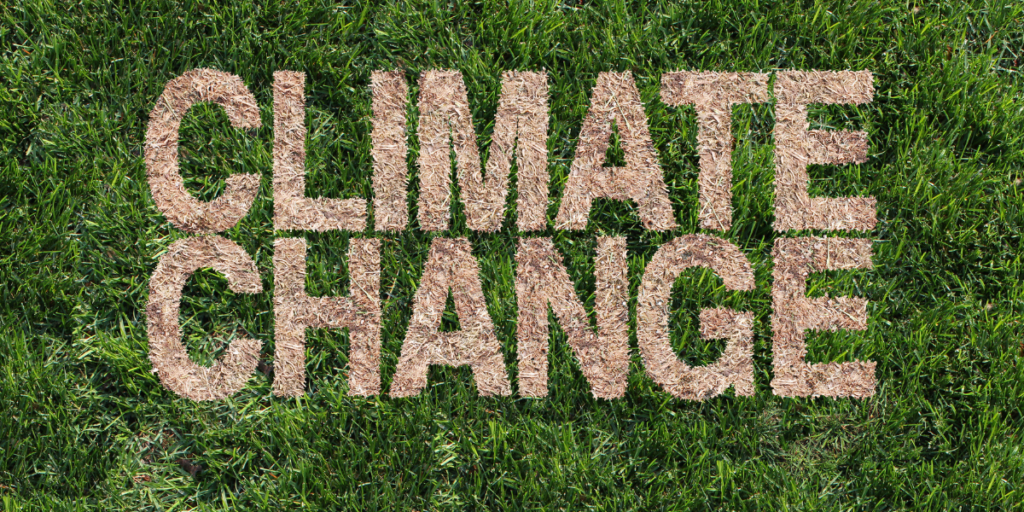
Climate Change and its Effects on Oceans
Hey, did you know that climate change is wreaking havoc on our oceans and causing major ecological disruptions? The rise in greenhouse gases is causing the Earth’s temperature to increase, which in turn is causing our oceans to warm up.
This warming has led to ocean acidification, which occurs when carbon dioxide dissolves into seawater and lowers its pH level. As a result, marine life such as shellfish and coral are struggling to survive because their shells or skeletons cannot form properly under these conditions.
Furthermore, the warmer waters are also causing coral bleaching. Coral relies on algae for food and coloration; however, when temperatures rise above normal levels, the algae leave the coral’s tissues resulting in a bleached appearance.
Bleached corals do not die immediately but are more susceptible to disease and death over time if conditions do not improve. This phenomenon not only affects marine ecosystems but also indirectly impacts human livelihoods such as fisheries and tourism industries that rely on healthy reefs.
It is crucial that we take action now by reducing greenhouse gas emissions to mitigate further damage to our oceans’ health and biodiversity.
Sustainable Practices for Preserving Marine Ecology
Let’s explore ways we can sustainably preserve the health and biodiversity of our oceans. One way is through eco-tourism, which not only helps to promote conservation efforts but also provides economic benefits for local communities.
It involves visiting natural areas in a manner that minimizes negative impacts on the environment while promoting environmental awareness and cultural understanding. By supporting eco-tourism, you’re helping to create jobs for local people who then have an incentive to protect their environment.
Another sustainable practice is community engagement. This involves working with local communities to educate them about the importance of marine ecology and involving them in conservation efforts.
This can be done through various means such as organizing beach cleanups, setting up recycling programs, or providing education on sustainable fishing practices. By engaging with local communities, we can help raise awareness about the impact of human activity on marine ecosystems and work together towards preserving its health and biodiversity for future generations.
The Importance of Preserving Marine Ecology for Future Generations
You can make a difference in preserving the health and biodiversity of our oceans for future generations to enjoy by supporting sustainable practices and community engagement efforts.
As human activity continues to have a negative impact on marine ecology, it’s crucial that we take action now to mitigate these effects. Challenges such as overfishing, pollution, and climate change threaten the delicate balance of marine ecosystems.
To address these challenges, solutions for conservation must be implemented. This includes promoting sustainable fishing practices, reducing plastic waste through recycling and proper disposal methods, and advocating for policies that reduce greenhouse gas emissions.
Education plays a key role in this effort as well – informing the public about the importance of protecting marine ecosystems can lead to greater support for conservation efforts at all levels.
By working together towards these goals, we can ensure that future generations have access to healthy oceans full of diverse species and thriving ecosystems.
Frequently Asked Questions
What are some specific examples of sustainable practices for preserving marine ecology?
To preserve marine ecology, engage in eco-friendly fishing practices like using biodegradable nets and avoiding overfishing. Coral reef restoration involves planting new coral and protecting existing ones from damage.
How do different types of pollution, such as plastic waste and oil spills, affect marine life differently?
Different types of pollution have varying impacts on marine life. Microplastics can be ingested by organisms, leading to physical harm and disrupted behavior. Oil spills can devastate local fishing communities and cause long-term ecological damage.
What can individuals do on a daily basis to help preserve marine ecology?
You can help preserve marine ecology by reducing your carbon footprint and getting involved in your community. Small changes like using reusable bags and supporting sustainable seafood can have a big impact on the health of our oceans.
How do climate change and rising sea levels impact marine ecosystems beyond just temperature changes?
Climate change and rising sea levels cause acidification and hypoxia, leading to reduced oxygen levels and increased acidity in the ocean. Overfishing also reduces marine biodiversity, threatening the stability of entire ecosystems.
What are some potential long-term consequences if we do not prioritize preserving marine ecology?
If we fail to prioritize preserving marine ecology, there will be severe long-term implications such as ecological imbalance. Human activities like overfishing, pollution and climate change are detrimental to the health of marine ecosystems and ultimately impact our planet’s well-being.

